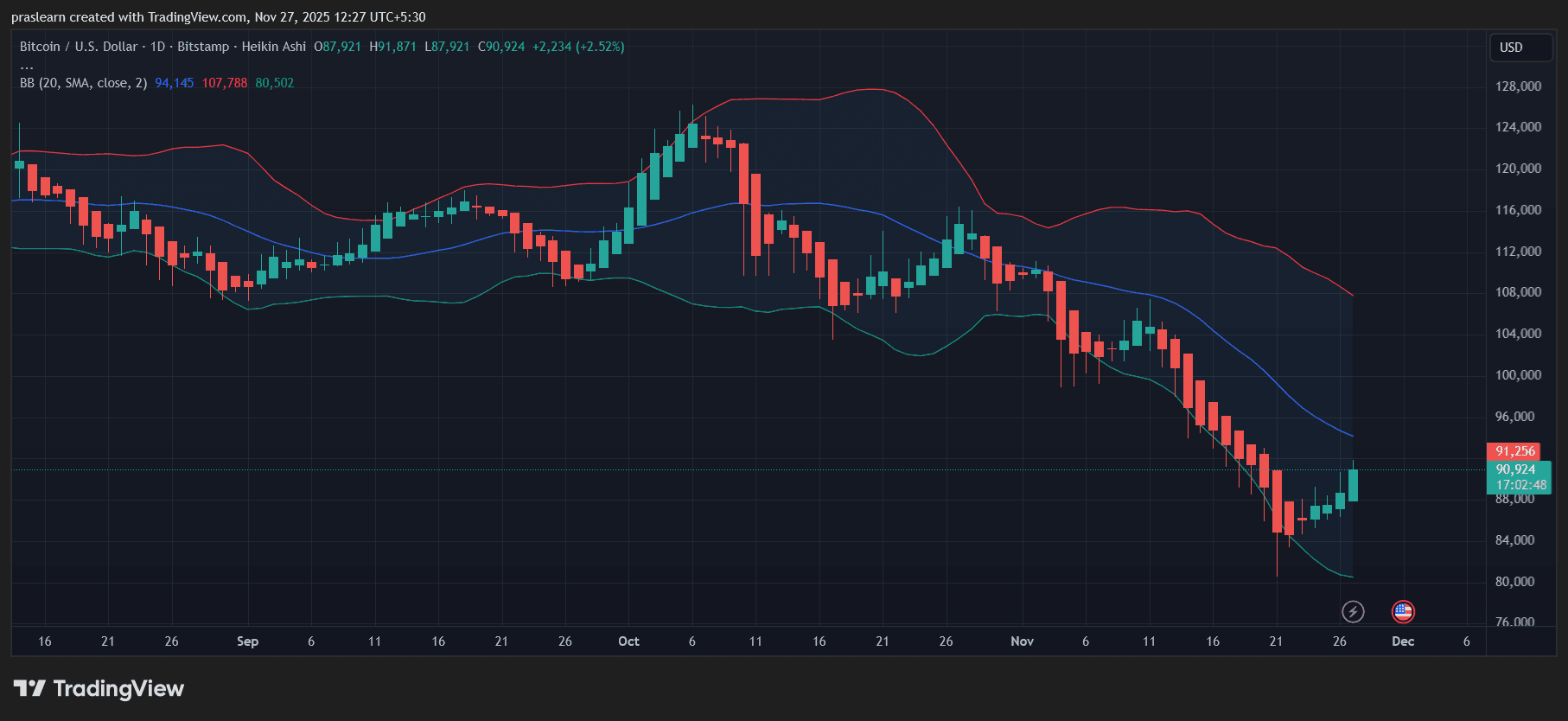Revolut POL staking opens high-yield access to Polygon rewards for UK and EEA users
Retail customers across Europe gain a new option to earn yield as Revolut POL staking is rolled out to users in key markets.
Summary
- How does Revolut’s new POL staking feature work?
- How can users start staking POL on Revolut?
- Why is Revolut expanding into staking services?
- What does Revolut pol staking signal for the wider crypto market?
- What is happening on the Polygon network behind POL?
How does Revolut’s new POL staking feature work?
Digital bank Revolut has launched staking for the POL token, giving users in the UK and European Economic Area a fresh way to earn on their crypto. The product offers an estimated annual percentage yield of 19%. However, the APY is variable and may move with market conditions, so returns are not guaranteed.
With a combined population of more than 520 million people across the UK and EEA, the launch dramatically expands access to on-chain yields. Moreover, it brings staking into an app that many customers already use for everyday payments, foreign exchange and investing.
How can users start staking POL on Revolut?
Staking is the process of locking tokens to help secure a blockchain network in exchange for rewards. On Revolut, the process for POL token staking is designed to be straightforward for retail users. First, customers open the Revolut app and head to the Crypto section. Then they select the POL asset and tap Stake.
After that, users choose how much POL they want to lock and confirm the transaction. Once staked, their tokens begin earning rewards at the current variable APY. However, yields can change over time, so active monitoring remains important. This streamlined, in-app flow mirrors a broader fintech trend of embedding blockchain-based products directly into familiar interfaces.
Why is Revolut expanding into staking services?
A growing number of European investors have already embraced staking on other platforms using assets such as Ethereum and Solana. They earn yield while keeping ownership of their coins, instead of selling them. Revolut’s move into POL staking taps into that established behavior but wraps it in a user experience many consumers already trust.
Moreover, the company is lowering entry barriers. Everyday users, not only professional traders, can now access staking-style income from within a mainstream finance app. That said, staking still carries risk, including token price volatility and potential changes to protocol-level rewards.
What does Revolut pol staking signal for the wider crypto market?
The rollout underscores several shifts in digital assets. First, staking is moving beyond specialist crypto exchanges and wallets into large fintech ecosystems such as Revolut. Second, customers increasingly seek products that combine utility with income potential, rather than pure price speculation.
Users no longer need to manage complex self-custody wallets or technical validator setups to earn on-chain rewards. Instead, they can stake through a familiar app interface. However, this convenience also concentrates trust in a single platform, so transparency around terms and risks remains crucial.
What is happening on the Polygon network behind POL?
The POL token is linked to the Polygon ecosystem, which continues to post notable on-chain activity. On November 25th, Polygon recorded its largest single day for stablecoin transfers, processing 5.54 million transactions. This set a new high for stablecoin usage on the network.
Moreover, that spike in Polygon stablecoin activity highlights growing demand for fast and low-cost transfers. As more users move value across Polygon, staking-linked incentives such as POL rewards become a core part of the network’s economic design.
In summary, Revolut’s POL staking launch brings competitive, variable-yield crypto products into a mainstream European fintech app. It extends access to blockchain-based income streams for UK and EEA users while underscoring Polygon’s rising role in global digital payments.
Disclaimer: The content of this article solely reflects the author's opinion and does not represent the platform in any capacity. This article is not intended to serve as a reference for making investment decisions.
You may also like
Bitget Wallet Introduces Zero-Fee Feature for Its Crypto Card in Over 50 Markets
Are Big Changes in Store for the Bitcoin Price?

Secure Blockchain, Misleading Agreements: Spoofing Incidents Increase on Monad
- Monad's mainnet faces spoofing attacks as scammers use smart contracts to mimic ERC-20 token transfers, misleading users with fake logs. - Co-founder James Hunsaker clarifies the network remains secure, but external contracts exploit EVM openness to create deceptive transactions. - Over 76,000 wallets claimed MON tokens in airdrop, creating high-traffic conditions that attackers leverage through fabricated swaps and signatures. - Security experts warn users to verify contract sources and avoid urgent pro

Bitcoin Latest Updates: Worldwide Regulatory Changes and Major Investors Propel Bitcoin and Brazil's Markets Upward
- Bitcoin surged to $91,500 amid institutional adoption, Fed rate cut expectations, and post-halving rebound, despite $3.79B ETF outflows and inherent volatility. - Brazil's stock market hit records after tax reforms exempted low-income households, aligning with global redistributive policies and boosting 15 million earners. - Binance delisted BTC pairs like GMT/BTC for regulatory compliance, while on-chain metrics signaled crypto market consolidation and mixed altcoin prospects. - Global macro risks persi
